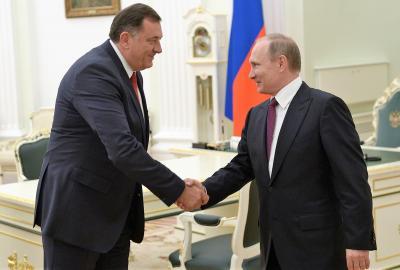Žurnal in English
WHY THERE ARE NO FOREIGN INVESTMENTS: Bosnia and Herzegovina is a country of conflict for the investors
Our country has poor basic infrastructure. This is just one of the reasons why direct foreign investments in BiH are at a modest level. Several investments worth hundreds of millions of marks have been announced in Vareš alone over the past few years. To date, little has been realized
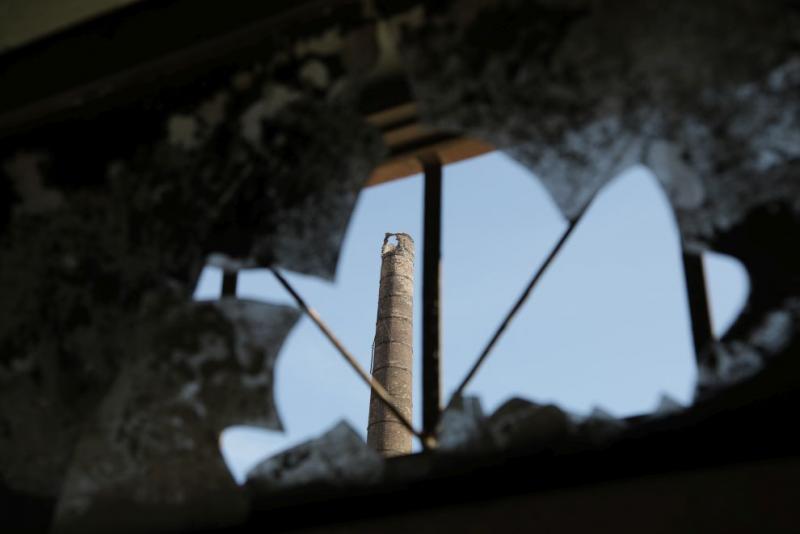
“We instruct you to act in line with the Rulebook on the conditions, procedure and fees for opinions of the Tax Administration, according to which you can submit a request for an opinion in writing. Please note that you can find instructions on payment of the fee for the opinion of the FBiH Tax Administration (which is 50 KM for one tax-related inquiry) on the website.”
This is part of the response of the Tax Administration of Federation of BiH sent to a BiH citizen (name known to the editorial office) who currently lives and works in Switzerland. In short, she, together with her husband, who is a foreign citizen, wanted to resettle in BiH, given that they do jobs that they can do “remotely”.
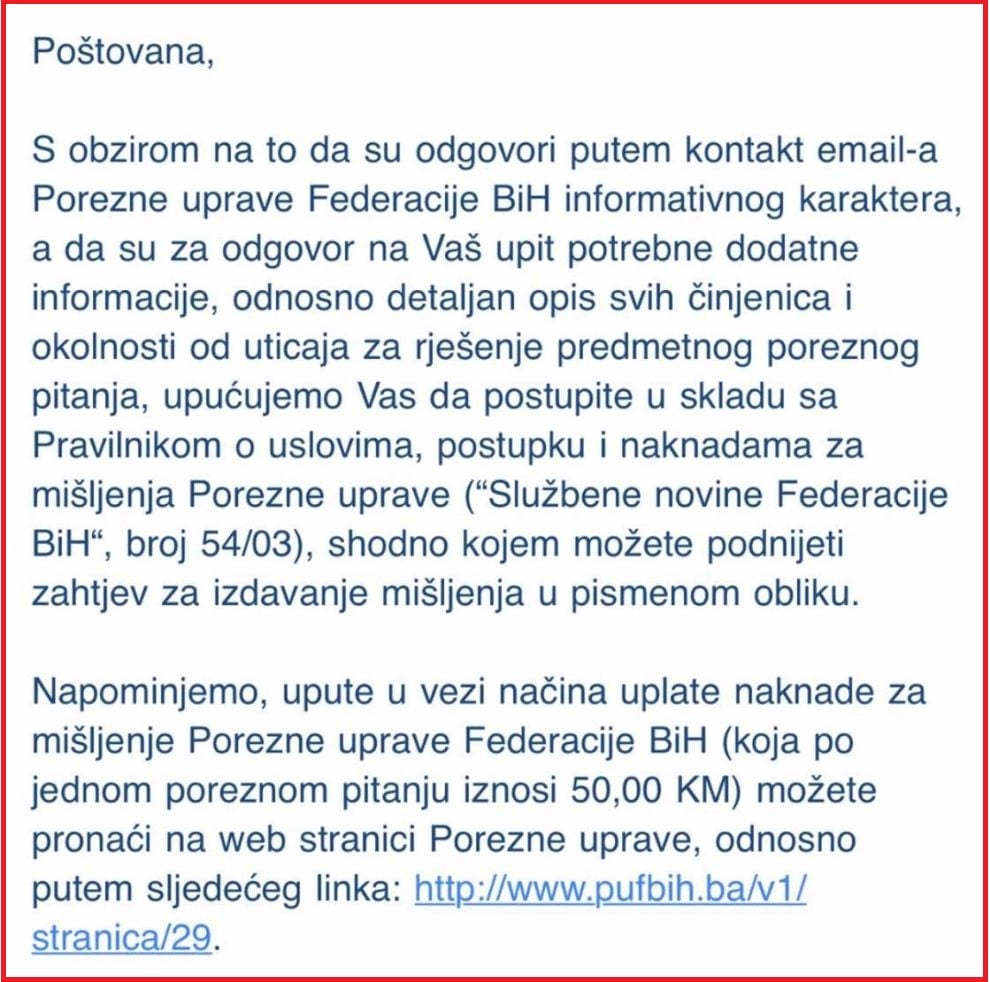
Not wanting to act contrary to the law, the BiH citizen sends an inquiry to the FBiH Tax Administration. Simply put, they were interested to know what kind of a company was needed for their type of business. While such information is publicly available and/or free in most other countries, the FBiH Tax Administration states that one has to pay to get their opinion! The amount to be paid is 50 marks (it remains unclear if this refers to one complete inquiry or if that amount is paid for each separate inquiry).
“I have decided to not come for now, because I cannot get any detailed information on taxation and deductions through the state institutions”, said the disappointed BiH citizen for Žurnal.
“BiH IS NOT INTERESTING TO FOREIGN INVESTORS”
This is just one practical example that shows the attitude of institutions in BiH towards potential investors who would in this case, if nothing else, at least pay taxes in our country and thus fill the budget.
Therefore, it is not surprising that direct foreign investments in BiH are negligible compared to the investments in other countries, both in Europe and in the region.

“BiH is not interesting to foreign investors and I am not giving that assessment sweepingly. If we look at the direct foreign investments in the context of the region, we see that BiH significantly lags behind neighboring countries, especially behind the neighboring Serbia. These are concrete data. Why is it so? There are a number of reasons. First of all, internal problems, then the external perception of our country, because we must be aware that investors perceive BiH as a country of conflict,” economic analyst Admir Čavalić explains for Žurnal.
Some of the special problems he points out are complexity of the system, attitude of the institutions and authorities, and corruption of course:
"We have exceptional problems with corruption - for example, investors have the most problems with corruption at the local level, and that is the level where foreign investment is realized. In general, the fact is that we have never entered the society of developing markets, where Slovenia was, and Croatia and Serbia were close. "
While European, Russian, American, Chinese, Turkish and other investors are increasingly investing in the Western Balkans, their investments in BiH remain relatively modest. Čavalić says that those who come do not come because of the climate in BiH, but in spite of it.
"We are the last to arrive if we compare ourselves with neighboring countries. Things are going pretty slowly, although some things are happening. If we talk about amounts, those are really negligible amounts when we talk about direct foreign investments," he points out.
The fact is that BiH has a modest basic infrastructure - an underdeveloped network of highways, outdated railways, etc. And the lack of road infrastructure is the biggest barrier to foreign investment.
"Let's take retail chains as an example. You have to have a developed road infrastructure in order to have developed distribution channels", explains Čavalić. When asked why we do not have more foreign investments in the basic infrastructure, he points out that it is "likely that the concept of public-private partnership has not yet taken root in BiH in the true sense."
COULD VAREŠ BE INTERESTING TO INVESTORS?
Before the war, Vareš was an example of a mining town where members of many nationalities lived. Today, the Municipality of Vareš is one of the poorest municipalities in the country.

Vareš (Photo: Adi Kebo/zurnal.info)
“Our budget is around 3.5 million KM. It can in no way be developmental. It all comes to pure survival”, said for Žurnal the municipal mayor Zdravko Marošević (HDZ BiH).
Whoever comes to Vareš is welcomed by demolished factories, abandoned or dilapidated buildings, outdated infrastructure ... As informed by Marošević, only about 8.000 inhabitants live in the entire municipality today. He describes to us how the municipality has come to the situation it is in today.
“Everything stopped working with the war. As soon as the mine had stopped working, all other service industries also came to a halt. Most of what is left of the past is poor infrastructure that we cannot rebuild yet - roads, insulation of buildings, railways...”, points out the mayor of Vareš Municipality.
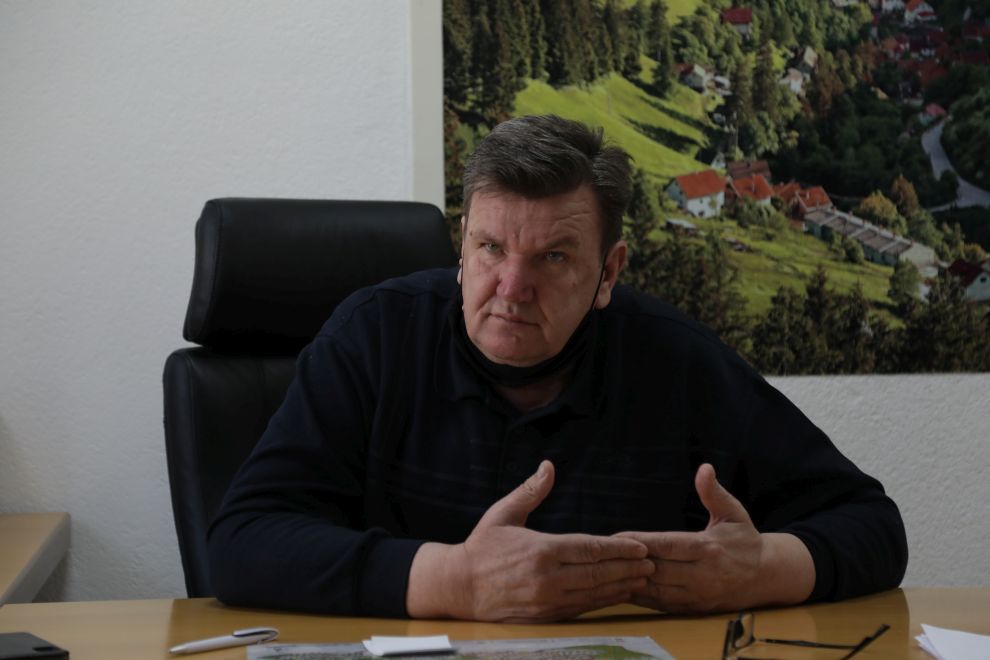
Zdravko Marošević (Photo: Adi Kebo/zurnal.info)
In order for Vareš to get minimum reconstruction and at least restore the status it once had, investments are needed, both public and private. In recent years, several large foreign investments in Vareš have been announced. Little has been realized.
“Americans want to build Vareš-Banovići railway”, published the BiH media at the end of 2019. As it was then published, the FBiH Government had approved 600.000 KM for feasibility study, and the value of the investment was assessed at around 400 million KM.
Almost a year and a half later, there is no new information. Municipal Mayor Marošević says that the project has full economic justification and that it should be seen as a European, and not just a BiH project.
The last tourist train came to Vareš in 2012. Žurnal journalists checked the condition of the railway today. A familiar picture - buildings demolished and devastated, railway overgrown. Everything is left to be weathered by age. As the locals tell us, the railroads were destroyed and even cut to be sold for scrap metal.
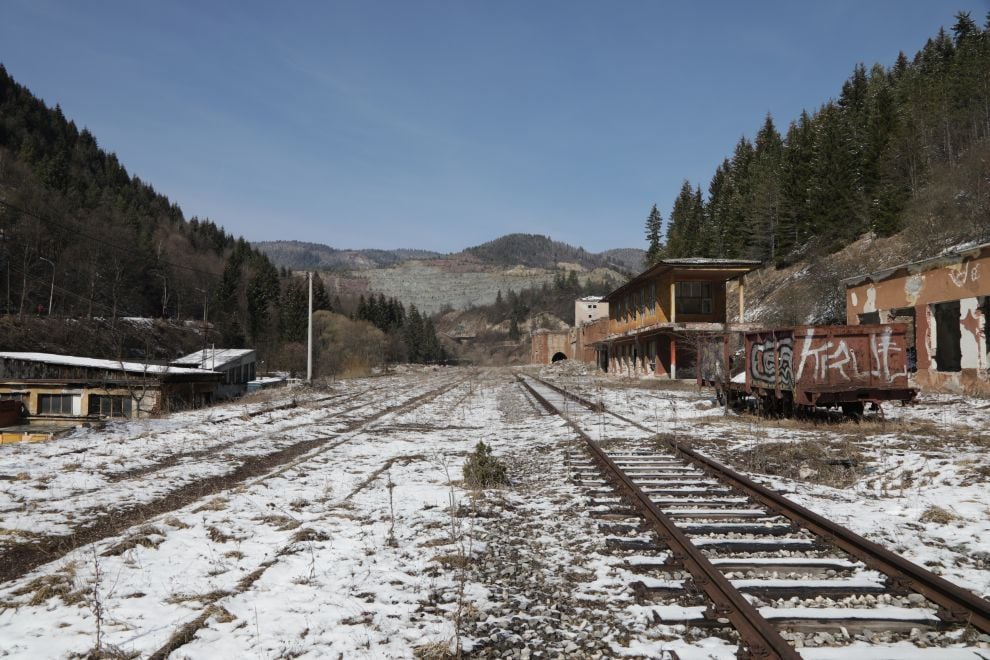
(Photo: Adi Kebo/zurnal.info)
Economic analyst Admir Čavalić says that the railway infrastructure is important for lowering of transport costs, and consequently for lowering of final consumption prices.
“Foreign investors would have an interest in investing in railways, if it were a good model of public-private partnership. That would probably revitalize certain local communities in BiH that are, indeed, getting demographically extinct”, adds Čavalić.
In Vareš itself, the reconstruction of the railway is also important because of the mines. Let us remind you, the company “Eastern Mining”, owned by the British company “Adriatic Metals PLC”, received a permit for the exploitation of lead, zinc and barite in Vareš. This is probably the largest post-war investment in this municipality. Mayor Zdravko Marošević points out that he is in constant contact with the investors and that exploitation should begin soon.
“Preparations are underway for the infrastructure, construction of roads, and exploitation permits are being obtained ... Exploitation will probably start in 2022, and in 2023 it should be at full capacity. According to them, then they should become the largest exporter in BiH,” says Marošević.
The municipality of Vareš should get a lot from the mine - better infrastructure, residents will get the opportunity to work, and the municipality of Vareš will generate significant income through concession fees. Amongst all announced investments, it seems that the investment in the Vareš mines is the only one that has been realized.
YET ANOTHER ARAB TOURIST RESORT
It was recently announced that Arab investors will build a tourist resort on the territory of Vareš Municipality. Certain details were released to the public after one of the last meetings in the Government of Zenica-Doboj Canton, which was attended by the acting Prime Minister of Zenica-Doboj Canton Mirnes Bašić, Minister of Physical Planning, Transport and Communications and Environmental Protection of Zenica-Doboj Canton Arnel Isak, Mayor of Vareš Zdravko Marošević, and a representative of investors from Saudi Arabia.
In short, the investor has already bought approx. 540.000 square meters of land on the border with the Municipality of Ilijaš, on the slopes of mountain Zvijezda. The land has already been parceled out, and the construction of a complex with a hotel, accompanying structures, recreational centers, villas, bike paths, adrenaline parks and other facilities is planned.

When asked what benefits the Municipality of Vareš and its citizens will have from the tourist resort itself, municipal mayor Marošević answered:
“They are using land that is passive. The land was mostly owned by Serbs. Unfortunately, Serbs did not return and decided to sell it. We collect sales tax, tax for issuing documents, utility fees. People living nearby will have a chance to work there. Our utility company will have its operations there.”
According to the announcements, the works should start in the spring.
“Since it is a slope, it is first necessary to do road communication, along with some other things, in order to prepare everything for other works. That costs about 10 million Euro”, said Marošević.
Over past several years the construction of several dozen tourist resorts has been announced in BiH. Most of them have never been completed, and works have never even begun on many of them. Marošević is not worried about that:
“An investor can stop tomorrow, if it is profitable for him. The value of land sold was two and a half million, taxes were paid here. If they can afford to buy it and then to leave it ... I just know that only tourist facilities can be built there, but one can buy it and do nothing for years.”
During the conversation with the municipal mayor, we learn that the entire complex will probably not be built soon and that there are no guarantees that everything will be built.
As can be seen from the regulation plan, the construction of private houses and villas is planned for the most part. They will not be built immediately, but only if someone is interested and transfers the money for construction. If they are not interested investors - they will not be built.
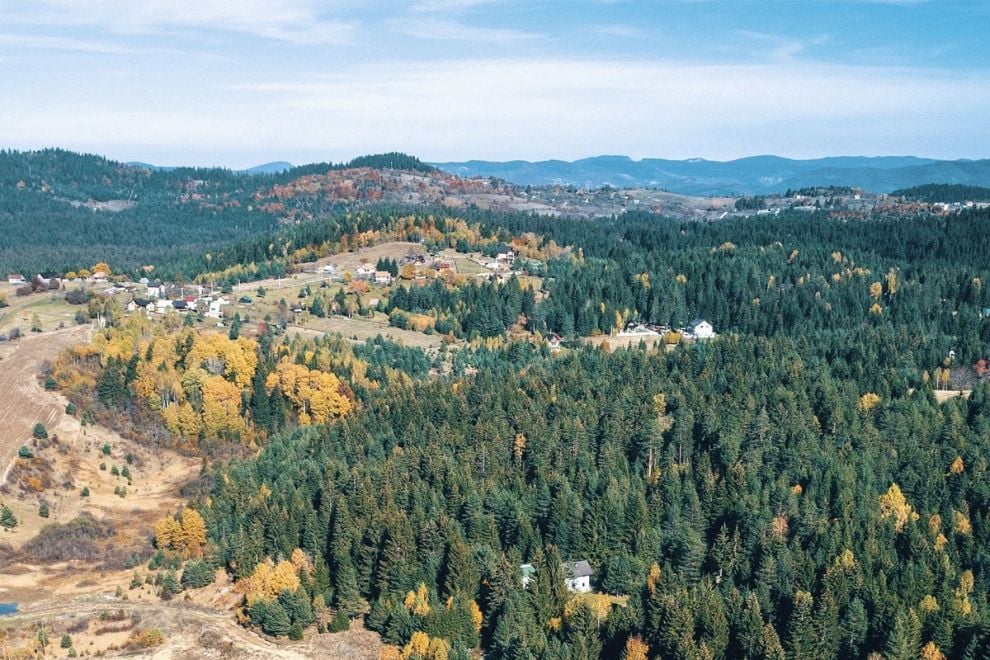
Marošević admits that the Municipality of Vareš will not benefit from the Arab settlement itself, as it will from the mine, and that he is aware that this settlement is for the Arab clientele: “I have lived in the Arab world for a long time. They have their own style. We are aware of that. This settlement is for their clientele.”
Žurnal journalists visited the area where the settlement will be built. The road from Vareš to this part is not the most accessible one, and it is much easier to get to this area from Sarajevo. However, what we find out is that there are also sources of drinking water in this area - sources of drinking water Mahmutovića river and Misoča river, according to available data, belong to the protection zone III of the mild protection regime. The whole area is rich in forests.
“Everything must be regulated by law. That is why we are in contact with the Municipality of Ilijaš and the competent ministries. Forests must be retained. A forest trail can be made, but the forest must not be devastated. The stream must be clean to drink, it must be protected. However, they are aware that it is technically expensive”, says Marošević.
Anes Podić from the Association "Eco Action" tells us that things are not so simple.
“Any human activity where there are water protection zones is problematic. Someone will wash the car, oil leaks from the car will happen, water will fall down the roofs, washing away the dirt that end up underground again. It is a mostly porous, karst terrain that settles very quickly, then the sewage start to crack and leak. So, any construction is completely inappropriate in and near water protection zones, particularly the construction of some huge settlements”, Podić points out.
The companies from BiH that bought the land are owned by the company “Dar al Arkan”, whose headquarters are in Saudi Arabia. According to available data, this is the first project of this company on European soil. According to the Arab media, the company “Dar al Arkan” is one of the largest in Saudi Arabia when it comes to the companies engaged in sale, development and construction of real estate. Interestingly, the news that “an investigation has been launched in Saudi Arabia due to suspicious trade in shares of the company “Dar Al Arkan” had been released in December 2020.
The presentation of the project in our country notes that this area is only a 30-minute drive from Sarajevo, and in the immediate vicinity of Nišići.
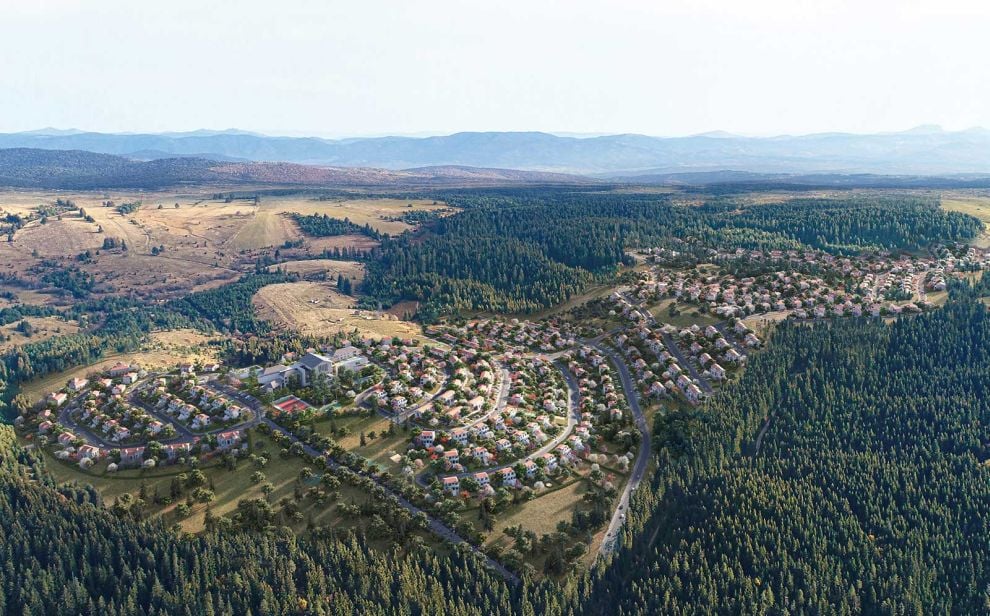
In other words, the Municipality of Vareš is not mentioned. What is important to the investor is the proximity of the airport and good connection between Sarajevo and that location. More precisely, the investor’s priority is to better connect with Sarajevo, and not Vareš itself, although the settlement should be built on the territory of that municipality.
Economic analyst Admir Čavalić does not see the construction of such tourist resorts as significant investments.
“They have a certain tourist potential, but it should be taken into account that tourism generally does not contribute to GDP, even though it is higher clientele. You should not expect too much from that. Capital is usually questionable; these financial constructions are very fragile and this has been proven not only in BiH. There are, of course, some internal, private reasons that one should not get into, but these are not stable financial models. They have not proved as more serious investments”, concludes Čavalić.
.png)
(zurnal.info)





